Hi there, fellow dog lover! I’m Dr. Candy, a holistic veterinarian, and today we’re going to talk about a topic that’s very close to my heart – Bichon Frise Dental Health. As a proud dog parent, you know that your adorable Bichon Frise deserves the best care possible, and that includes their oral health. Did you know that dental health is directly linked to overall health in dogs? It’s true! Just like in humans, poor dental hygiene in dogs can lead to a variety of health issues, from tooth loss and pain to heart disease. And our fluffy friends, the Bichon Frise, are no exception. They are prone to certain dental health issues that need our attention. So, let’s get started on this journey to ensure your Bichon Frise has the brightest, healthiest smile in the dog park!
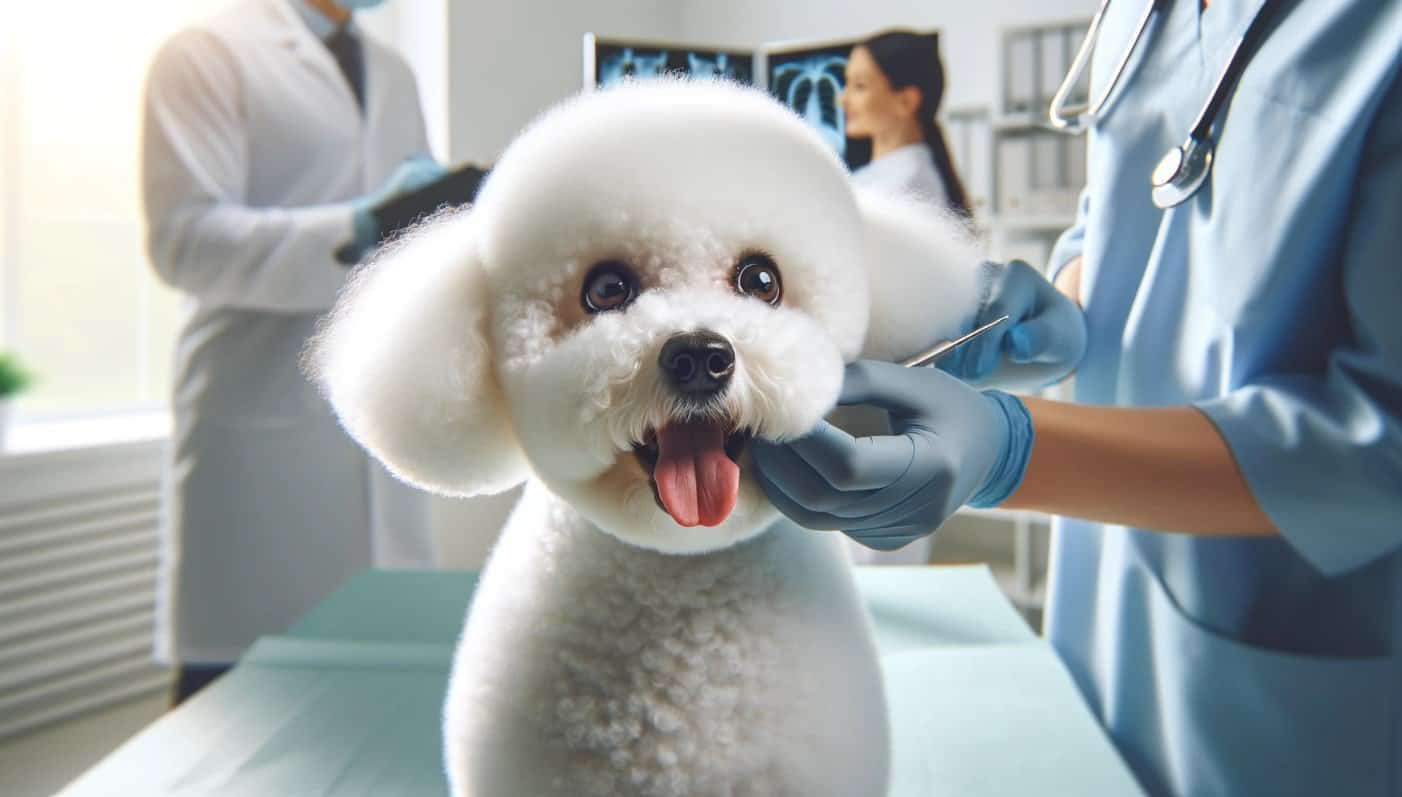
Signs of Dental Disease in Bichon Frise
As a holistic veterinarian, I often encounter parents of Bichon Frise dogs who are deeply concerned about their furry friend’s dental health. They come to me with questions like, “How can I tell if my Bichon Frise is suffering from dental disease?” or “What are the signs of dental problems in my Bichon Frise?” If you are one of them, let me assure you, you’ve come to the right place. Understanding the signs of dental disease is the first step to ensuring your Bichon Frise’s oral health.
Bichon Frises, like any other dog breed, can suffer from dental diseases. Their small mouth size often makes teeth overcrowding a common issue, which can lead to plaque build-up and eventually, dental diseases. Early detection can make a significant difference in managing your Bichon Frise’s dental health.
Here are some signs that your Bichon Frise may be suffering from dental disease:
- Bad breath: While dog breath is never pleasant, an unusually foul smell could indicate the onset of dental disease.
- Changes in eating habits: If your Bichon Frise is suddenly refusing to eat hard food, or is dropping food while eating, it could be due to oral discomfort.
- Swollen or bleeding gums: Red, swollen gums that bleed easily are a common sign of gum disease.
- Yellow or brown teeth: Discoloration of teeth, particularly yellow or brown, could indicate plaque build-up, a precursor to dental disease.
- Drooling: Excessive drooling, especially if it’s bloody, can be a sign of oral disease.
If you notice any of these signs, it’s important to seek veterinary attention immediately. Dental diseases can cause severe discomfort and can lead to more serious health issues if left untreated. As a holistic veterinarian, I can offer a range of treatment options for Bichon Frise dental health, from conventional treatments to more natural, holistic approaches.
Remember, prevention is always better than cure. Regular brushing of your Bichon Frise’s teeth, providing a healthy diet, and using appropriate dental chews can help prevent dental disease. But more on that later. For now, let’s focus on understanding the problem, before we dive into the solutions.
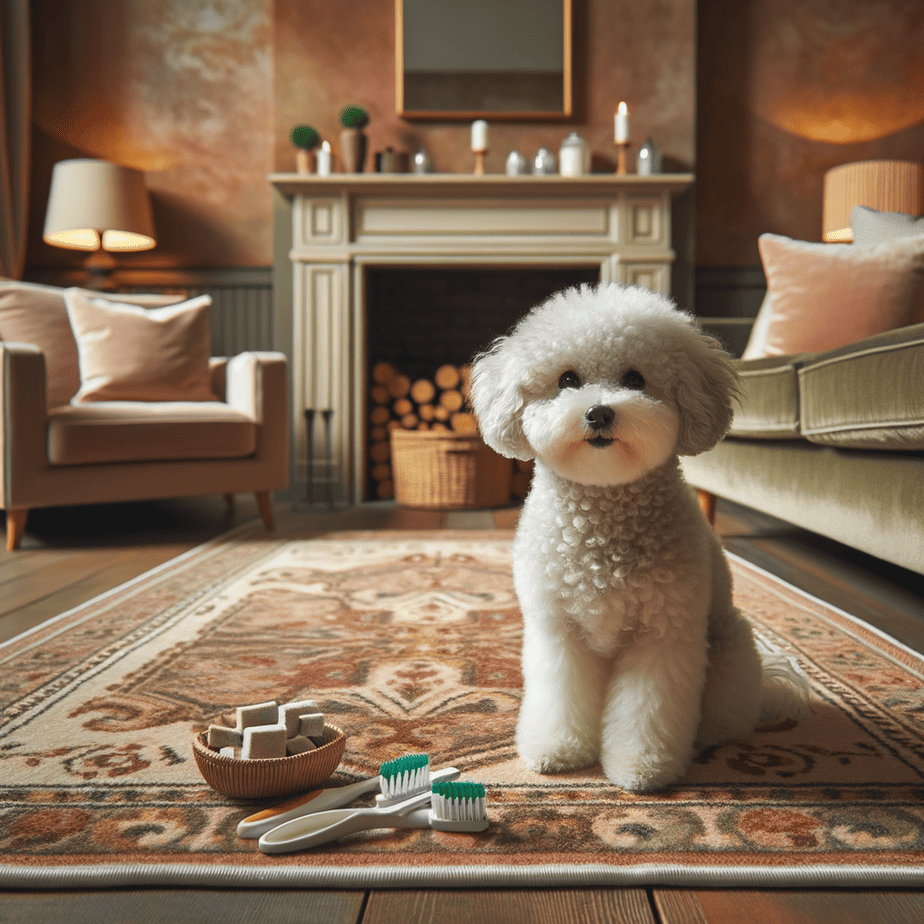
Common Dental Health Issues In Bichon Frise
As a veterinarian, I’ve noticed that Bichon Frise dental health is a topic that often concerns many dog parents. This breed is particularly prone to certain oral health problems. Understanding these issues can help you take the necessary steps to prevent them.
One of the most common dental health issues in Bichon Frise is periodontal disease. This is a condition where plaque and tartar build up on the teeth, leading to inflammation and potential tooth loss. Bichon Frises are more susceptible to this disease due to their small mouths and tightly packed teeth.
- Bad breath: This is often the first sign of dental disease. If your Bichon Frise’s breath is persistently foul, it’s time to check for other signs of oral health problems.
- Gingivitis: This is an inflammation of the gums that can cause discomfort and bleeding. It’s often a precursor to more serious dental issues.
- Tooth decay: Bichon Frises are also prone to cavities, just like humans. Regular brushing and professional cleanings can help prevent this.
Another common issue is a condition known as malocclusion. This is when the teeth don’t align properly, which can lead to difficulty eating and other health problems. Bichon Frises are particularly prone to this due to their unique jaw structure.
In addition to these, Bichon Frises can also suffer from broken teeth and oral tumors. Regular check-ups and good oral hygiene can help catch these issues early and ensure your Bichon Frise’s dental health is in top shape.
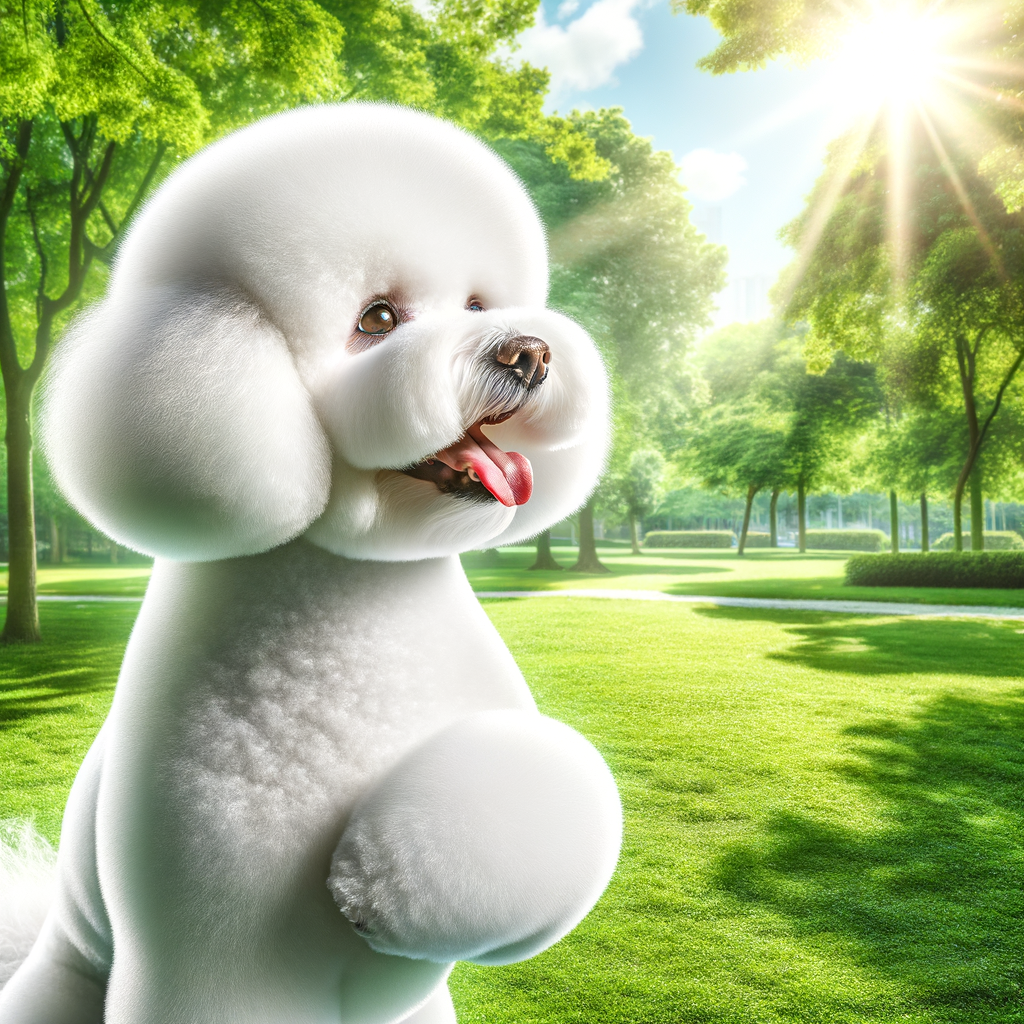
Conventional Dental Health Treatments
When it comes to maintaining your Bichon Frise Dental Health, there are a few conventional treatments that most veterinarians might recommend. Here, we’ll explore a couple of these treatments, their benefits, and potential health obstacles your Bichon Frise might encounter.
Anesthetic Dental Cleanings
Just like humans, dogs need regular dental cleanings to maintain oral health. Anesthetic dental cleanings are a common procedure carried out by vets to thoroughly clean a dog’s teeth. This process involves putting your Bichon Frise under general anesthesia. While under, the vet will perform a comprehensive dental cleaning, which includes scaling, polishing, and a full oral examination.
While this procedure is effective in maintaining your Bichon Frise’s dental health, it’s not without its risks. Anesthesia can be risky, especially for dogs with heart problems, drug sensitivities, or seizures. It’s essential to discuss these risks with your vet to determine if anesthetic dental cleanings are right for your Bichon Frise.
Potential Individual Health Obstacles
When considering dental treatments for your Bichon Frise, it’s crucial to take into account potential health obstacles that could make certain procedures riskier. For instance, dogs with heart problems might not tolerate anesthesia well, which could make dental cleanings a riskier endeavor.
- Heart Problems: Bichon Frise dogs are susceptible to certain heart conditions, which may increase the risks associated with anesthesia.
- Drug Sensitivities: Some Bichon Frises may have sensitivities to certain drugs used during anesthetic procedures, leading to adverse reactions.
- Seizures: If your Bichon Frise has a history of seizures, anesthesia could potentially increase seizure frequency.
- Extreme Age: Older dogs often have a harder time tolerating anesthesia, making dental procedures more challenging.
It’s always best to discuss these potential health obstacles with your vet before any dental procedures. They can help you understand the risks and benefits and make an informed decision about your Bichon Frise’s dental health.
As a dedicated owner of a Bichon Frise, you’re probably already aware of the importance of dental health in your beloved pet. Now, let’s talk about a holistic approach to oral and dental health. This approach, recommended by Dr. Candy, focuses on diet and the use of oral health specific probiotics.
Diet: Low Carbs, Avoid Added Sugars, Enzymes In Fresh Food
Firstly, it’s important to consider your Bichon Frise’s diet. A diet low in carbohydrates can help prevent the buildup of plaque and tartar on your dog’s teeth. Avoiding added sugars is also crucial as sugar can lead to tooth decay. Instead, opt for meals that are high in fresh foods. Fresh foods, especially raw fruits and vegetables, contain natural enzymes that help to break down plaque and keep your dog’s teeth clean.
- Low Carbs: Foods like lean meats and vegetables are low in carbs and good for your dog’s teeth.
- Avoid Added Sugars: Check the ingredients of your dog’s food and treats. Avoid products with added sugars.
- Enzymes In Fresh Food: Fresh fruits and vegetables like apples, carrots, and celery can help clean your dog’s teeth naturally.
Oral Health Specific Probiotics
Another way to improve your Bichon Frise’s dental health is through the use of oral health specific probiotics. These probiotics are designed to promote a healthy balance of bacteria in your dog’s mouth, which can help prevent dental disease.
One product that Dr. Candy recommends is Probiora for Dogs, an oral health targeted probiotic. This supplement is easy to use – simply sprinkle it on your dog’s food once a day. It works by populating your dog’s mouth with beneficial bacteria, which crowd out the harmful bacteria that cause bad breath and dental disease.
Incorporating these holistic methods into your Bichon Frise’s routine can greatly improve their dental health. Remember, a healthy mouth is a key part of overall health and well-being for your furry friend.
Stay tuned for the next section where we’ll be discussing recommended dental chews and products for Bichon Frise. It’s time to kiss bad breath goodbye!
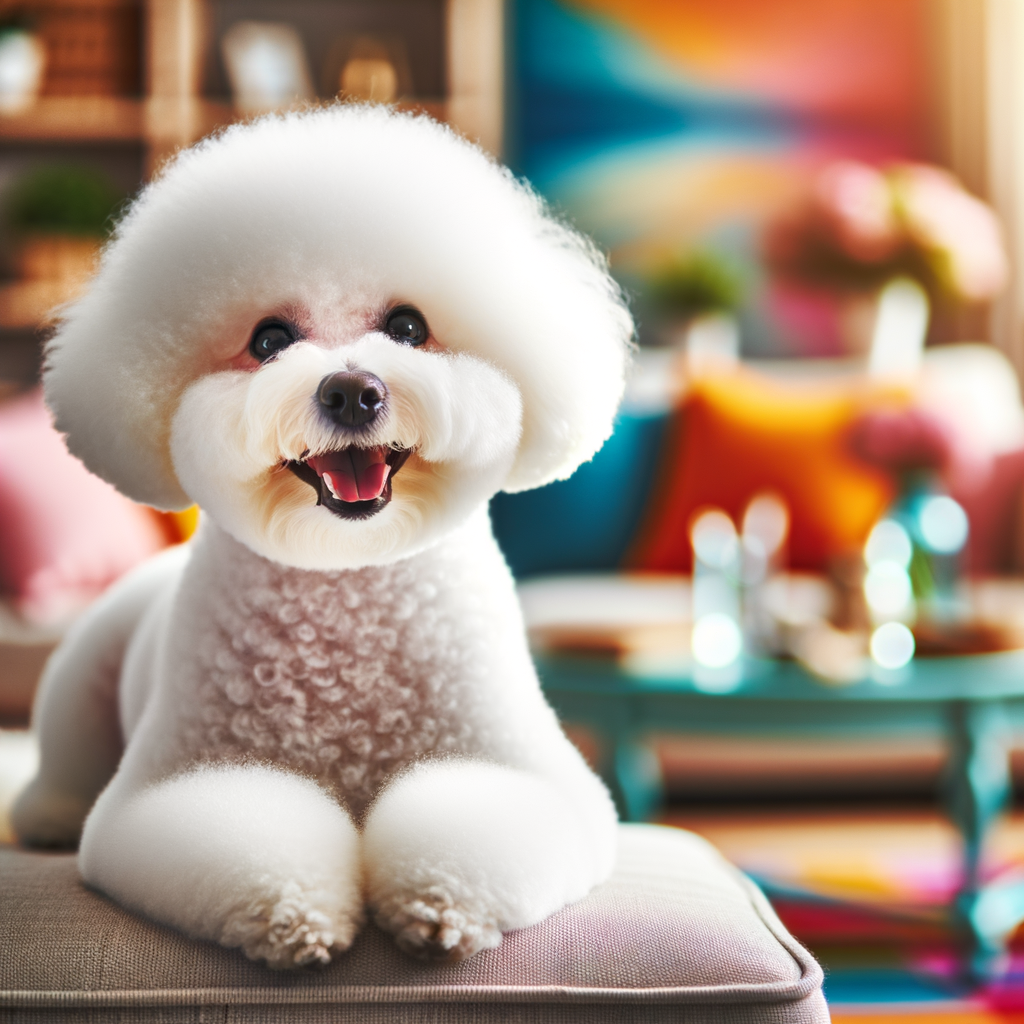
Recommended Dental Chews & Products For Bichon Frise
When it comes to maintaining your Bichon Frise’s dental health, not all dental chews and products are created equal. Many commercially promoted dental chews, while marketed as beneficial for your pet’s oral health, often fall short of their promises. These products can contain artificial ingredients, added sugars, and fillers that do little to promote dental hygiene and can even contribute to dental issues. Moreover, some of these products have been linked to digestive problems and other health concerns.
Similarly, drinking water additives, another commonly promoted dental health solution, can do more harm than good. While they may help freshen your pet’s breath, they can disrupt the natural balance of beneficial bacteria in your pet’s gut, potentially leading to digestive issues.
So, what should you use to maintain your Bichon Frise’s dental health? The answer lies in single-source natural proteins. These are dental chews and products made from natural sources, without the addition of harmful chemicals or artificial ingredients.
Dr. Candy’s Recommended Dental Chews & Products
Tendons
Tendons are a fantastic natural chew for your Bichon Frise. They are tough and fibrous, which helps to scrape off plaque and tartar from your dog’s teeth. Plus, they are a good source of protein and collagen, promoting good joint health.
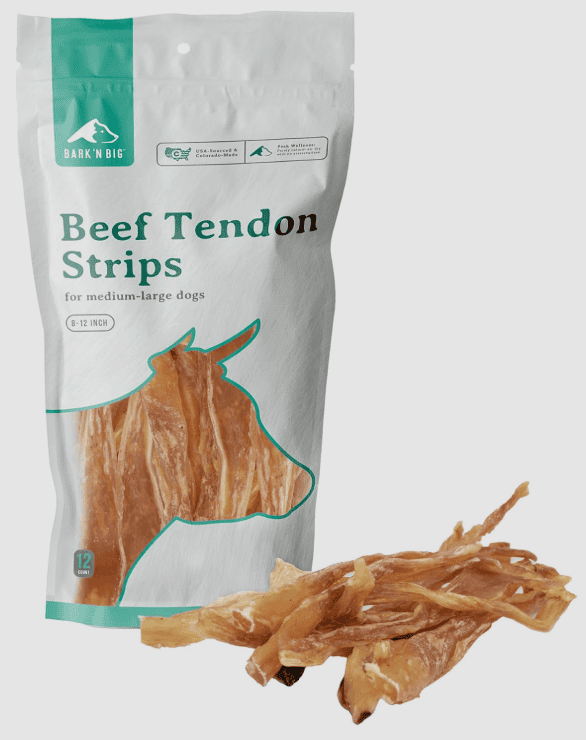
Raw Marrow Bones
Raw marrow bones are another excellent choice for maintaining your dog’s dental health. They are a natural source of calcium and phosphorus, which are essential for healthy teeth and bones. Furthermore, the act of gnawing on bones can help to clean your dog’s teeth and gums.
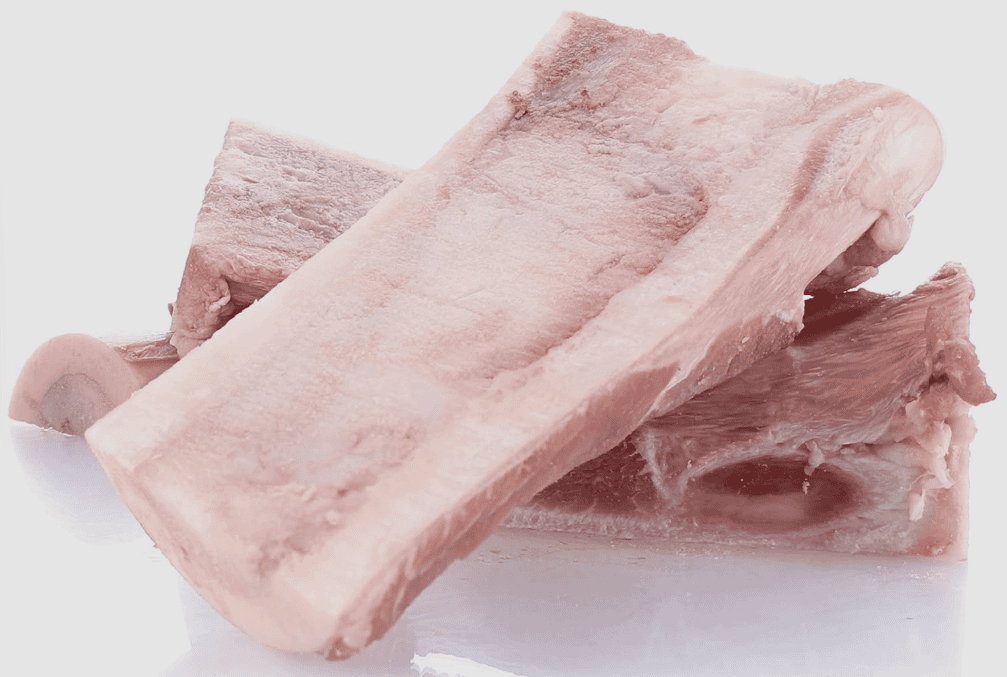
Bully Sticks
Bully sticks are made from 100% beef muscle, providing a natural and digestible chew for your dog. They can effectively remove plaque and tartar and are a good source of protein. However, always supervise your dog while they’re chewing on a bully stick to prevent any choking hazard.
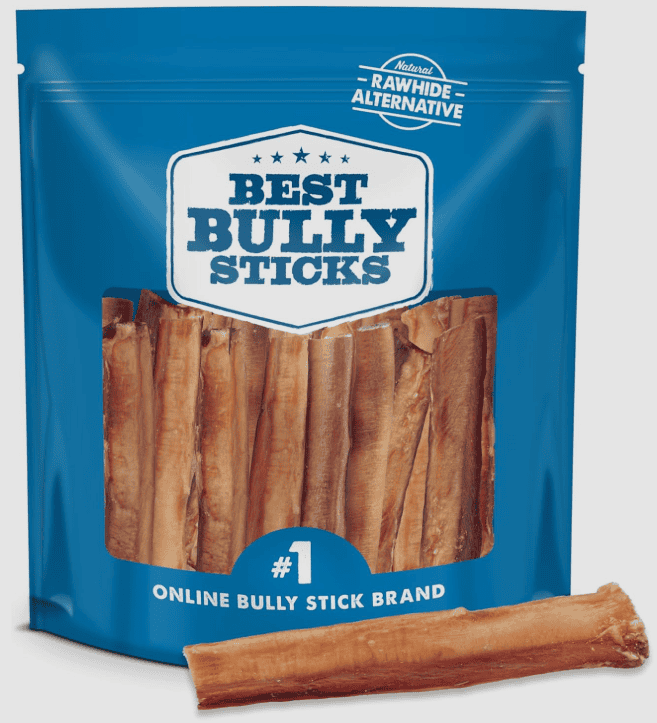
Remember, consistency is key when it comes to maintaining your Bichon Frise’s dental health. Regular use of these recommended dental chews and products, coupled with a balanced diet and regular vet check-ups, will help ensure your pet’s oral health remains in top condition.
As a pet parent, it’s your responsibility to ensure your Bichon Frise’s overall health and well-being. Proper dental care is a crucial part of this responsibility. By choosing the right chews and products, and avoiding those that can do more harm than good, you can help ensure your pet has a healthy, happy, and long life.
Frequently Asked Questions
1. How can I prevent bad breath in my Bichon Frise?
Regular brushing of your Bichon Frise’s teeth is crucial in preventing bad breath. Use a dog-specific toothbrush and toothpaste to clean their teeth at least 2-3 times a week. Additionally, providing dental chews or toys can help remove plaque and freshen their breath.
2. What are some signs of dental problems in Bichon Frises?
Some common signs of dental problems in Bichon Frises include bad breath, yellow or brown tartar buildup on the teeth, swollen or bleeding gums, difficulty eating, pawing at the mouth, or a sudden change in chewing habits. If you notice any of these signs, it’s important to consult a veterinarian.
3. Can I use human toothpaste for my Bichon Frise’s dental care?
No, you should never use human toothpaste for your Bichon Frise. Human toothpaste contains ingredients that are toxic to dogs if swallowed. Always use toothpaste specifically formulated for dogs, which is safe for them to ingest.
4. How often should I take my Bichon Frise for professional dental cleanings?
Professional dental cleanings for Bichon Frises are typically recommended once a year. However, the frequency may vary depending on your dog’s dental health and the advice of your veterinarian. Regular check-ups with a veterinarian will help determine the appropriate timing for professional cleanings.
5. Are there any natural remedies for bad breath in Bichon Frises?
While regular dental care is the most effective way to combat bad breath, there are some natural remedies you can try. Adding a small amount of chopped parsley to your Bichon Frise’s food can help freshen their breath. Additionally, giving them raw carrots or apples as occasional treats can aid in cleaning their teeth naturally.
